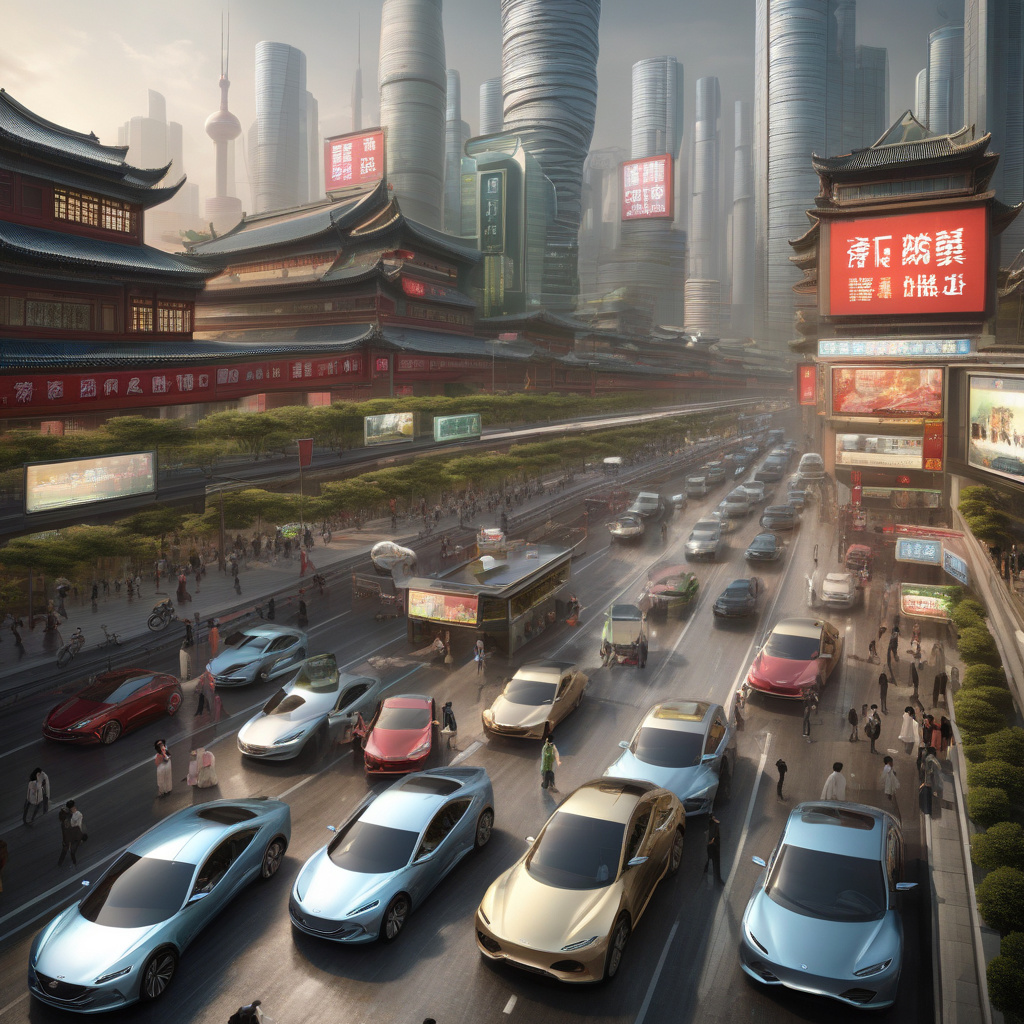In a recent development that has stirred the automotive industry in China, automakers are now facing stringent restrictions on how they can market their vehicles’ driver assistance technologies. The Chinese government has taken a firm stance, disallowing the use of terms like “autonomous driving,” “self-driving,” and “smart driving” in advertisements. This move aims to prevent misleading claims and set clear boundaries on the capabilities of current automotive technologies.
The decision, as reported by Reuters based on a meeting transcript between government officials and industry representatives, is part of an updated regulation framework. Automakers will no longer be able to promote their vehicles as possessing autonomous driving features, signaling a significant shift in the marketing strategies of car manufacturers in the Chinese market. This rule not only applies to traditional advertising but also extends to how improvements to advanced driving assistance systems are communicated.
The prohibition on using terms such as “autonomous driving” underscores the importance of transparency and accuracy in the automotive sector. As the industry continues to innovate and introduce new technologies to enhance vehicle safety and convenience, it becomes crucial to manage consumer expectations effectively. By restricting the language used in marketing campaigns, the Chinese government is taking proactive measures to ensure that consumers are well-informed about the actual capabilities of driver assistance systems.
This regulatory update poses a challenge for automakers operating in China, forcing them to rethink their branding and communication strategies. With the term “autonomous driving” being off-limits, companies will need to find alternative ways to highlight the benefits of their vehicles’ advanced features without overpromising or creating false impressions. This shift in advertising guidelines not only impacts current campaigns but also influences future product development and messaging.
Moreover, the ban on rolling out improvements to advanced driving assistance systems via software updates adds another layer of complexity for automakers. In an era where over-the-air updates have become a common practice for enhancing vehicle functionalities, this restriction requires companies to navigate the regulatory landscape more carefully. Balancing innovation with compliance is now a delicate dance for automakers looking to stay competitive in the Chinese market while adhering to the new advertising rules.
As the automotive industry grapples with these regulatory changes, it is essential for automakers to adapt swiftly and thoughtfully. Finding creative ways to communicate the value of driver assistance technologies without using prohibited terms will be key to maintaining consumer trust and loyalty. By embracing transparency and clarity in their marketing efforts, automakers can navigate this challenging terrain and continue to drive innovation in the evolving landscape of smart mobility solutions.
In conclusion, the ban on using terms like “autonomous driving” in car ads in China reflects a broader trend towards regulating how advanced automotive technologies are presented to the public. By enforcing clearer communication guidelines, the Chinese government aims to protect consumers from misleading claims while encouraging responsible innovation in the automotive sector. Automakers must now recalibrate their marketing strategies to align with these new regulations, fostering a more transparent and informed marketplace for driver assistance technologies.

